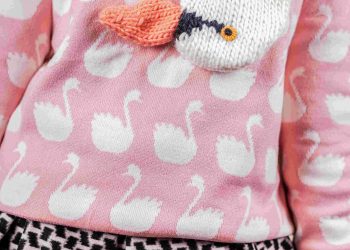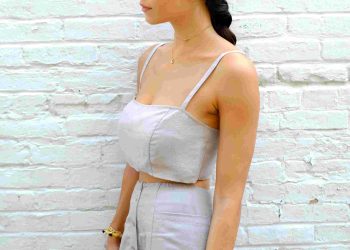The Rise of Conscious Consumerism in Fashion
In a world flooded with fast fashion and greenwashing, it’s no longer enough for consumers to simply be aware of their purchases. The modern consumer is conscious, seeking more than just stylish attire; they want sustainable choices that reflect their values. Today, we delve into the burgeoning trends in sustainable fashion that not only cater to aesthetic desires but also pave the way for a healthier planet.
Personal Journey Toward Sustainability
My awakening came abruptly. I was rummaging through my closet, staring at clothes with labels claiming ‘100% eco-friendly’ written in bold letters. Yet, the irony hit me hard: these garments had traveled across continents, often disregarding ethical labor practices. It was then that I realized that being a consumer in today’s world means navigating a complex web of choices that reflect our individual beliefs and the collective responsibility we hold. This shift in perspective urges us to question not just the ‘how’ but the ‘why’ of our fashion choices.
Challenging Conventional Wisdom
Traditionally, the fashion industry has operated on a simple model: produce, sell, dispose. But as climate change accelerates and resources dwindle, this model is being fiercely challenged. How often have we heard that ‘style is temporary, but fashion is forever’? This perspective needs re-examination. Sustainable fashion proponents are rewriting the narrative to suggest that lasting impact means lasting products. Brands like Patagonia and Eileen Fisher are proving that fashion can prioritize longevity over disposability, urging us to reconsider what we define as stylish.
Cross-Disciplinary Insights
The intersection of psychology and fashion reveals an interesting insight: our clothing choices significantly influence our self-esteem and mental health. The ability to express ourselves through sustainable fashion can foster a sense of identity and community, creating a psychological shift towards consumption that feels purposeful. Philosophically, this trend challenges the consumer mindset by encouraging mindful purchasing habits based on integrity rather than impulse. Tech innovations, such as blockchain for traceability in supply chains, further empower consumers to make informed choices.
The Future of Sustainable Fashion
What does the future hold for this evolving landscape? With increasing demand for transparency, we can predict a surge in brands adopting ethical practices. The rise of second-hand and rental services is testament to a growing culture of recycling and reusing that appeals to eco-conscious millennials and Gen Z. Imagine a future where clothing swapping is as common as dining out, where every outfit tells a story of sustainability. New materials, like lab-grown leather and recycled plastics, are just the tip of the iceberg. The shift towards circular fashion models, where products are designed for longevity and recyclability from the outset, will reshape the industry.
Practical Steps for Conscious Consumerism
As we navigate this complex ecosystem, practical steps can solidify our commitment to sustainable fashion:
-
Research Brands:
Dive into the ethos of your favorite brands. What are their sourcing practices? Do they engage in fair labor standards? -
Embrace Second-Hand:
Thrift stores and online resale platforms offer not only unique finds but reduce waste. -
Invest in Quality:
Prioritize versatile pieces that stand the test of time over fleeting trends. -
Participate in Clothing Swaps:
Engage with your local community to exchange items, refreshing your wardrobe sustainably. -
Stay Educated:
For optimal impact, continuously educate yourself and others on sustainable practices and innovations within the industry.
The Power of Imaginative Language
Imagining our wardrobe as a vast canvas, consider each garment a brushstroke contributing to a holistic masterpiece. The fabric is our medium, the message, sustainability. Through bold colors and textures woven with care, we are not just dressing ourselves; we are making statements about the world we inhabit. Just as an artist contemplates each layer of paint, we too must reflect on the layers of impact our choices create.
The Importance of Lifelong Learning
Adopting a sustainable mindset requires ongoing education. Each new research article or documentary exposes us to fresh perspectives. Engage with experts, participate in workshops, and read up on sustainability efforts to remain informed. As Ralph Waldo Emerson once stated, “The mind, once stretched by a new experience, can never go back to its old dimensions.” This commitment to continued learning shapes our choices, cultivating a deeper connection to what we wear.
Encouragement for Action
Let this be a clarion call to each reader: your choices matter. Each time you shop, you are casting a vote for the kind of world you want to live in. Empower yourself by seeking out brands that resonate with your sustainable values. Engage in conversations about fashion’s role in climate change. Advocate for stronger regulations that protect both people and the planet in the supply chain.
A Critical Lens on Mainstream Views
It is essential to approach mainstream fashion narratives with a critical eye. The industry thrives on consumptive habits that often gloss over the environmental costs. By questioning promotional narratives and examining the commitments made by so-called sustainable brands, we can uncover truths hidden beneath flashy marketing campaigns. Sustainability should not be just a buzzword — it must be a comprehensive approach that permeates every facet of the fashion ecosystem.
Building a Circular Argument
As we journey through the landscape of sustainable fashion, we return to the core of personal choice and responsibility we discussed at the outset. Just as our initial experiences spark a shift in thinking, the choices we make establish ripples of influence that can inspire others. Each conscious purchase signifies a stride toward a more responsible industry. In continuing this discourse, we foster a community that values sustainability not just in theory, but in action.
In the grand narrative of existence, where fashion intersects with ethics, sustainability is more than a trend; it is a movement toward a richer, more connected experience with our environment. The fabric of fashion is changing, and as conscious consumers, we hold the power to shape this evolution.










